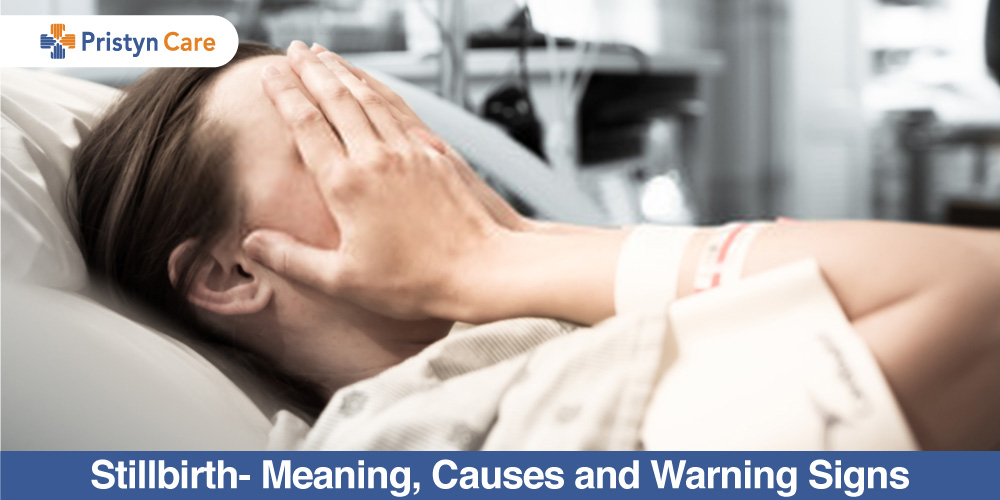
Stillbirth is when the baby shows no signs of life. This is an extremely sad and distressing phase for the expecting parents and family, as they deal with this sudden shock, grief and pain of losing their unborn baby. In most cases, the cause of stillbirth or whether it could have been prevented is unknown. However, there are certain things a female can do to lower her risk of having a stillbirth.
A stillbirth is the birth of the baby who has died at any time from week 20 of pregnancy through to the expected due date. The baby may have died in pregnancy or, less commonly, during delivery.
If the length of the gestation period (pregnancy) is not known, the birth is considered a stillbirth if the weight of the baby is 400 grams or more.
A stillbirth is not the same as a miscarriage, which occurs when the pregnancy ends before 20 weeks of pregnancy.
Table of Contents
What can cause or contribute to stillbirth?
Unfortunately, it is often not known what causes a stillbirth. But there are some risk factors that are known to cause or contribute to stillbirth. Such risk factors including:
- congenital anomalies (conditions that affect the baby’s structure, like how the baby’s body is built or function, how the baby’s body works while it is still developing in the womb)
- a premature birth (when the baby is too immature to survive, which outs the baby’s survival at risk)
- fetal growth restriction (when the baby does not grow to its full potential)
- a medical condition of the female, including pre-eclampsia, diabetes, renal disease, heart disease complications during birth
- complications with the umbilical cord or placenta
- advanced maternal age
- The female being obese before pregnancy
- Certain infections
- Sleeping on the back during pregnancy
- Smoking, drinking alcohol or taking any drugs (substance abuse) during pregnancy
- Trauma or knock to the female’s abdomen (the baby bump)
- Violence or abuse to the female during pregnancy
Can an expecting mother prevent a stillbirth?

Even though the cause of stillbirth is often not known, there are several things a female can do that may lower her risk of having a stillbirth.
Eating healthy, staying fit and taking folic acid before and during pregnancy, and avoiding smoking, drinking alcohol or taking drugs are all important steps to minimize the risk of stillbirth.
It is also important that the female goes to all of her prenatal appointments and screenings for any potential complications or health issues. Having an ultrasound in early pregnancy can detect such problems.
If a female has high blood pressure or diabetes, she should try to ensure they are well controlled before and during the pregnancy.
The female should monitor her baby’s movements, especially during the third trimester. If she thinks that the baby’s movements have changed, it is very important to speak to a doctor immediately.
Sleeping positions play a huge role in later pregnancy. A female should sleep on her side as the pregnancy progresses, especially from 28 weeks. Lying on the back puts pressure on major blood vessels, which can reduce the flow of blood to the womb, and restrict the baby’s oxygen supply. Research has shown that sleeping on the side can reduce the risk of stillbirth by half!
Possible warning signs of stillbirth

Contact a doctor immediately in case you notice any of the following-
- If you think the baby has stopped moving or is moving differently or lesser than usual
- If you have sharp pain or cramping in the abdomen or back
- If you receive a hard knock or blow to the abdomen
- If you are bleeding or having more vaginal discharge than normal
- If you feel dizzy, experience changes in vision (like blurry vision), or
- Have frequent, severe or long-lasting headaches
- Have sudden swelling or pain in the legs, feet or face
- Severe or ongoing nausea and vomiting that affects eating or drinking
- Fever or chills
- If you sense that something does not feel right, like an intuition
How is a stillbirth diagnosed?
Your doctor will let you know if the baby is not showing any signs of life and provide moral support while they give this news.
The female will still need to give birth to the baby and this, along with the news that her baby has died, is extremely traumatic for the expecting parents. They may be able to go home for a day or two before but would then have to come back to the hospital to give birth to the unborn.
Next steps
Physical recovery after delivery may take a few months, just as a usual delivery. A female who experiences stillbirth can go on to have healthy children in the future.
Be patient and take care of yourself as you work through this stage of grief.







